Klediments:
Philosopher Avital Ronell says In the book and movie, The Examined Life, “In regard to film I would say, very provisionally, that what interests me is the medium as something that sustains an ‘interruption of presence’ as it produces the illusion of immediacy and presence. What speaks to me is how film is on the haunted sign of things and the way it participates in a kind of mourning disorder, a failure to mourn, to let go, and is at the same time only ever in mourning over its objects (29).
My question is this: In what way could Ronell’s insight apply to making (writing) icons? In what way is my painting a dis-ordered mourning or an idolatrous, sinful attempt to fill a void (as Simone Weil says, “All sins are attempts to fill voids”). Am I creating illusions of an impossible immediacy springing from a failure to mourn, treating the death of god like an unsolved “cold case” that I refuse to close the book on? I commented on facebook today about Tarkovsky’s movie “Rublev.” I said that I don’t want to be a part of that crude, myopic mob we see trying to keep the balloon on the ground in the opening scenes of the movie, If it comes to it I’d rather be Yefim precariously riding beneath the uncontrollable balloon. But he’s not really ‘riding’ is he, he’s more entangled, bound up in the ropes, almost a prisoner. For sure Yefim sees farther than those on the ground (Tarkovsky really lays the symbolism on thick sometimes) but then he must either go where the wind takes him or else fall and die. Does leaping from the spire represent a (Kantian/Nietzschean?) forsaking of the illusions of the church? of religion? Sure throwing ourselves to the care of the wind (spirit?) is dangerous and frightening, but isn’t the quality of the revelation from heaven’s perspective worth risking one’s life for? Is that what’s going on in this part of the movie? But what about those that leaped from the church and were not caught by the wind? What about those that are thrown?
Later Ronell writes: “Where there's the pretense or claim for ultimate meaning and transparency.... When no one needs to do the anxious guesswork of how to behave or what to do - that's when you are not called upon to be strenuously responsible, because the grammar of being, or the axiom of taking care of the Other, is spelled out for you. According to several registers of traditional ethics, things are pre-scripted, they're prescribed. You know everything that you are supposed to do; it's all more or less mapped out for you. What becomes difficult and terrifying, and what requires infinite translation of a situation or of the distress of the world, is when you don't have those sure markers. You don't have the guarantee of ultimate meaning or the final reward or the last judgement and must enter into unsolvable calculations, searing doubts. Anyone who's sure of themselves, of their morals and intentions, is not truly ethical, is not struggling heroically with the mandate of genuine responsibility. It is impossible ever to be fully responsible enough - you've never given or offered or done enough for those suffering, for the poor, for the hungry. That's a law shared by Dostoyevsky, Levinas, and Derrida: one never meets one's responsible quota, which is set at an infinite bar (hence the invention of the figure of Christ, our infinite creator)” (41).
But are icons of Christ (including the ones on the page, on the tongue, or in the mind) a way of inventing or establishing ‘sure markers’ for a fabricated faith born from the fear of facing our responsibility to Being which is only rewarded with an infinity of deconstructible non-being? Or can icons be understood as provisional markers to remind us of that very responsibility to the Other that Ronell speaks of, remind us of not only “the law” shared by Dostoyevsky, Levinas, and Derrida, but also the word, spirit, and grace shared among Abraham, Moses, and Jesus?
Can icons be a part of the traditional ‘grammar of being,’ but not one that claims to have ‘everything spelled out for us,’ as Ronell rightly warns, but a dynamic relationship among the syntax’s of our broken, half-hearted, failing attempts to live our love for the Other into this world?
The sequence of pictures above is of an icon I destroyed. I painted it some years ago and since then my dissatisfaction has accumulated until a few days ago I found myself unable to abide it’s appearance. I painted it on plaster on weathered board so I had to take a scraper and a hammer and chisel the image off. As I was writing this I realized that unconsciously I destroyed the eyes of Jesus last. And that reminded me of something I wrote on ‘The Meaning of Meaning‘ for another blog a long while ago. I wrote:
“I am an Icon painter myself, and let me remind you that painters are deceivers by trade. And though I have painted the face of Christ many times, I am not always comfortable looking into the eyes of Jesus as I paint. I may work on an Icon for months, even years, and through the whole process the eyes of Jesus seem to continually question me, judge me, call me to examine myself; not condemning me but searching out my vanity, hypocrisy, pride, selfishness. I am sure that some of this experience is caught up in some abnormal psychology resulting form the absent, critical, angry, and abusive father and step-fathers I had growing up. Still, It is often a disturbing and painful experience. Painting an Icon should be a spiritual journey for the artist and when one finishes an Icon the artist should be able to reflect back on what was learned about oneself. It took me some years but eventually I learned to always paint the eyes of Jesus last.”
I will be repainting this icon, I hope. And when I do I will post a photo of it here. In the meantime this seems to be a good season for Russians. The wisdom of Mother Maria Skobtsova, Rowan Williams on Dostoevsky, Kallistos Ware on ‘The Jesus Prayer,’ the poetry of Pasternak, Akhmatova, and Tsvetaeva and the movies Doctor Zhivago, Rublev, and The Island, for the Umpteenth times. So my ‘poem of the week’ is from Russian poet Marina Tsvetaeva. She was a close friend of both Pasternak and Rilke (I am reading a remarkable book of their letters to one another titled “Letters 1926” and I recommend it to anyone interested in any of those writers). The extraordinary artist Anita Berber wrote just before she died young at 29 that, "a life in the service of poetry is a life not wasted." Maybe that’s true, but a life not wasted does not preclude a great deal of suffering and tragic deaths for both Berber and Tsvetaeva.
In a letter to Rilke just before he died Tsvetaeva wrote to him: “So, dear one, don't be afraid, simply answer yes to every "Give" - a beggar's comfort, innocent, without consequences. Most of the time my begging hand drops away - along with the gift - into the sand. What do I want from you? What I want from all of poetry and from each line of a poem: the truth of this moment. That's as far as truth goes. Never turns to wood - always to ashes. The word, which for me already is the thing, is all I want. Actions? Consequences? I know you, Rainer, as I know myself. The farther from me - the further into me. I live not in myself, but outside myself. I do not live in my lips, and he who kisses me misses me. Marina.”
Tsvetaeva was in Moscow when the Germans assaulted the city. She fled east, but after the arrests and death of most of her friends and some of her family, and her own suffering from sickness, hunger, homelessness, and isolation, she hung herself in 1941. To be a homeless beggar who still answers yes to every ‘give;’ to desire only word and thing and the truth even as your world turns to ashes, couldn’t that also be counted as “a life not wasted?”
The “Ars Amandi” (art of love) the speaker tells us in the poem, “is all the earth.” Can the icon, like the poem, be a “truth of this moment” a truth all of this earth, and at the same time be a truth we may best encounter when we leap from the spires of our illusions and fears even if we lack the faith that the ropes will hold us and the wind will take us?
From “Poem of the End” By Marina Tsvetaeva
The fatal volume
Holds no temptation for
A woman: For a woman
Ars Amandi is all the earth
The heart is the most faithful
Of all loves potions
From her cradle, a women
Is someone’s deadly sin
Ah, the sky is too distant
Lips are closer in the dark
Do not judge, God! You
Were never a woman on earth.
Obliged.
Κύριε Ἰησοῦ Χριστέ, Υἱὲ τοῦ Θεοῦ, ἐλέησόν με τὸν ἁμαρτωλόν.
Lord Jesus Christ, Son of God, have mercy on me, a sinner.




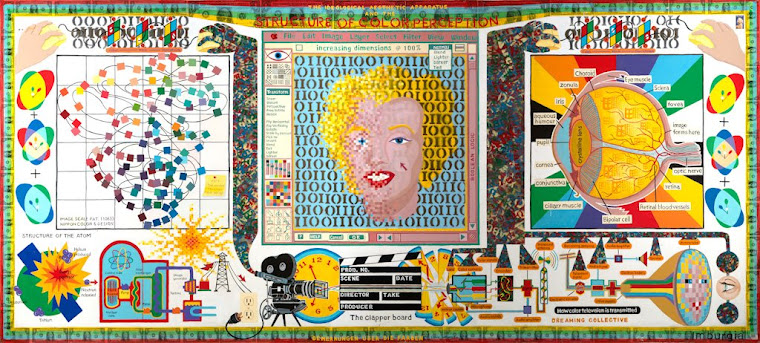



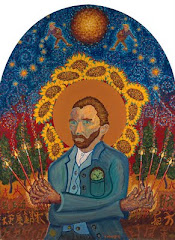


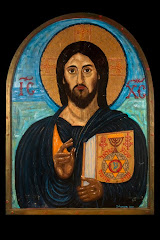
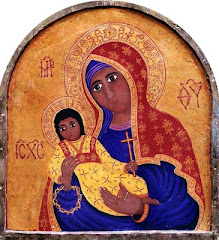

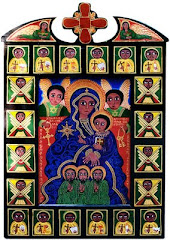

We're a group of volunteers and opening a brand new scheme in our community. Your site offered us with useful information to work on. You have done an impressive process and our entire neighborhood will be thankful to you.
ReplyDeleteHere is my page how to become an mma fighter